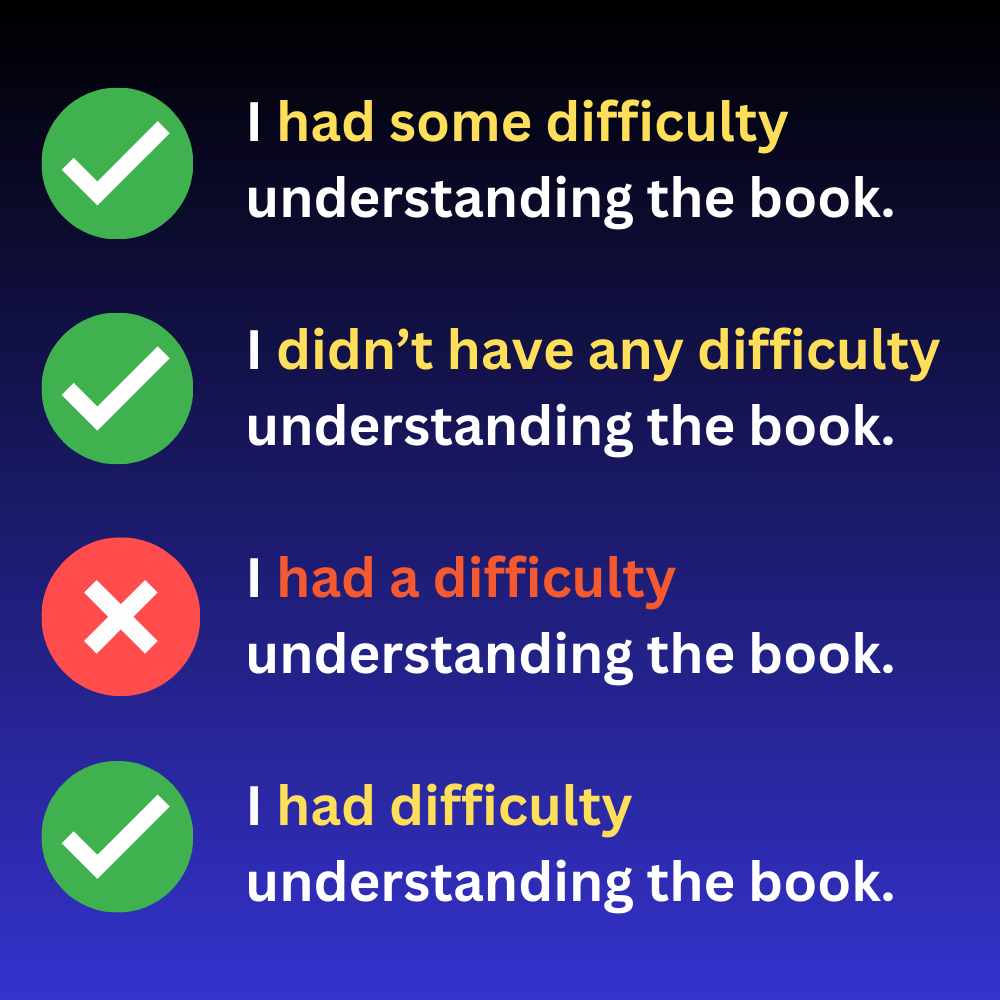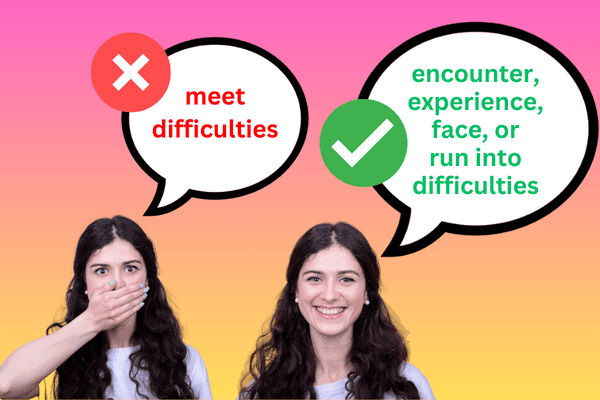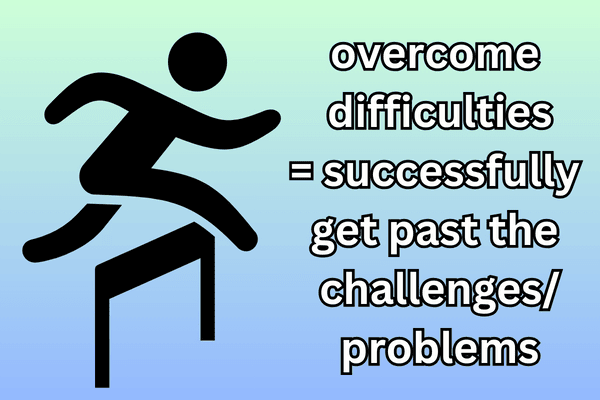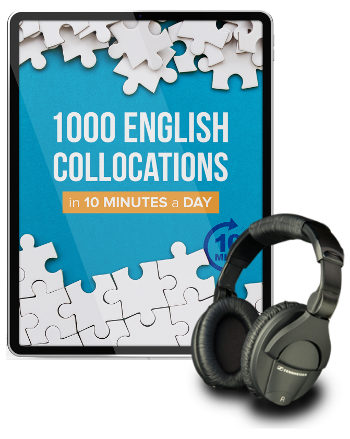
When do we use difficulty (singular) vs. difficulties (plural)?
I’m going to explain this and also teach you a number of collocations, typical combinations of words, to expand your vocabulary when it comes to common expressions!
Learning collocations improves your English fluency because instead of trying to put a sentence together word by word, trying to think “which verb goes with this noun?” or “which adjective sounds more natural?” – instead, you’ll already know combinations of words that go together.
My e-book, 1000 collocations in 10 minutes a day, makes learning collocations quick and easy. It has 50 short lessons, 50 quizzes, and comes with audio as well.
Difficulty vs. Difficulties
Now let’s take a look at difficulty vs. difficulties.
We typically use difficulty (singular) when we’re talking about one thing being hard, being difficult in general.
We use difficulties (plural) when we’re talking about a collection of multiple problems.
Look at the contrast between these sentences:
- Many English learners have difficulty understanding movies without subtitles.
(= it’s hard) - People who are disabled face many difficulties in daily life.
(= multiple difficulties – transportation, discrimination, taking care of oneself, etc.) - She lifted the heavy suitcase with difficulty.
(= one thing – lifting the suitcase – was hard) - I told the therapist about the difficulties in my marriage.
(= various hard things – maybe trust issues, or communication problems, or jealousy, etc.)

She lifted the heavy suitcase with difficulty.
Collocations with Difficulty and Difficulties
Now let’s learn some collocations.
With difficulty, singular, the most common verb to use is “have.” We typically say have difficulty, have some difficulty, or not have any difficulty, but not “have a difficulty.” For example:
- I had some difficulty fixing the bicycle.
(= it was hard) - She didn’t have any difficulty making friends at school.
(= it wasn’t hard)

When it comes to difficulties, we usually don’t say big/large difficulties; instead, you can say:
- great difficulties
- enormous difficulties
- major difficulties
- serious difficulties
If the difficulties are so big that they can’t be overcome, those are insurmountable difficulties. The word ‘insurmountable’ means it can’t be overcome. For example, “The program was canceled due to insurmountable difficulties during implementation.” This means that the difficulties were so great that it was impossible to proceed.
Another collocation is to talk about the difficulties inherent in something. ‘Inherent’ means that something is a necessary part of something else. For example, “The surgeon was aware of the difficulties inherent in such an experimental operation.” If an operation (a surgery) is experimental, there are going to be many difficulties that exist as a necessary part of it. It’s impossible to take them out.
If a situation is fraught with difficulties, it means it is completely full of difficulties. Politics is often fraught with difficulties because there are many politicians with conflicting views, and they disagree and argue and work against each other.

There are a number of verbs we can use when difficulties happen to you. Don’t say “meet difficulties” – I’ve heard some English learners say this, but it doesn’t sound very natural. Instead, you can say:
- encounter difficulties
- experience difficulties
- face difficulties
- run into difficulties (more informal)
For the action you take in response to difficulties, you can use two phrasal verbs: cope with difficulties or deal with difficulties. And, if you take action that helps you succeed and get past the difficulties, then you have overcome the difficulties.

I hope my lessons are helping you overcome the difficulties involved in learning English! That’s my goal – to help you go from “Um, I’m not totally sure if my English is correct” to “Yes! I understand English and can use it confidently!”
To take the next step in learning English with me, I recommend getting the 1000 Collocations E-Book. It’s one of my most popular ones – more than 15,000 students have read and enjoyed it over the years I’ve been teaching English. Download your copy today.
Your action step for the day is to write a couple sentences using the words difficulty and difficulties, using some of the collocations you learned. Thanks for watching and I’ll talk to you in the next video!

